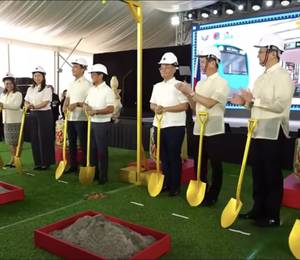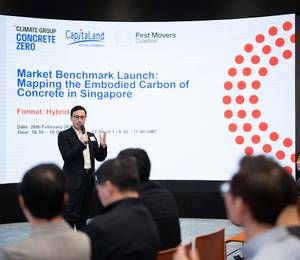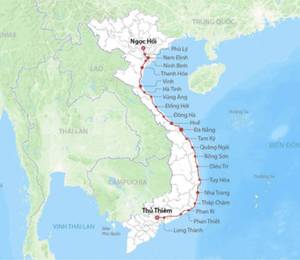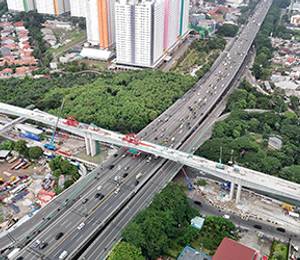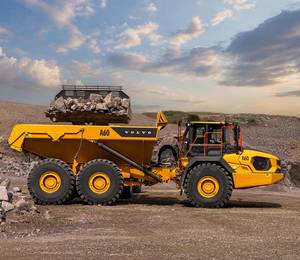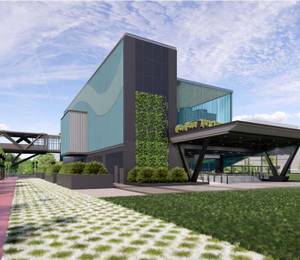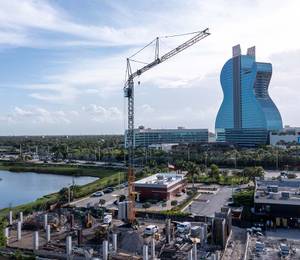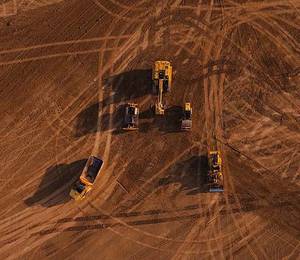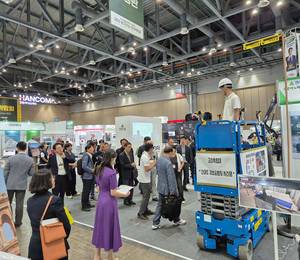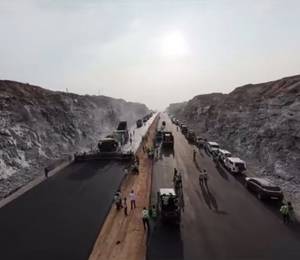The Planiseal WR 100 from Mapei is pure silane-based, very low-viscosity hydrophobising liquid with high penetration capacity to be applied directly on concrete surfaces. The system can travel through the capillary pores and penetrate deep down into concrete to form a protective hydrophobic impregnator that, over the years, helps to prevent degradation and detachment of concrete.
With its special formulation, the Planiseal WR 100 may be applied directly on both vertical and horizontal surfaces of porous and compact concrete, on new concrete and on concrete that has already been repaired or with no evident signs of detachment from the reinforcing steel.
Among concrete surfaces that are suitable for this system include: piles and abutments on bridges and viaducts; floor slabs; structures in marine environments such as quaysides and jetties; prefabricated reinforced concrete structures; front edges of balconies; stringcourses; foundations; prefabricated structures (like buffer panels, beams and columns); and internal and external reinforced concrete structures in general.
The Planiseal WR 100 drastically reduces water and chloride absorption, thus preventing corrosion of the reinforcement steel in concrete. The system also helps to prevent deterioration of new and repaired concrete caused by freeze-thaw cycles and de-icing salts and increases its durability, especially when used as part of a repair and protection cycle on reinforced concrete.
The Planiseal WR 100 complies with Euronorm EN 1504-9 (‘Products and systems for the protection and repair of concrete structures: definitions, requirements, quality control and conformity assessment. General principles for the use of products and systems’) and the requirements of EN 1504-2 (‘Concrete surface protection systems’) according to principles PI, MC and IR for class: H – hydrophobic impregnation: surface protection products.
Structural repair solution
Mapei’s Planitop Smooth & Repair R4 is a rapid-setting, shrinkage-compensated, thixotropic, fibre-reinforced cementitious mortar. It is mainly applied by trowel in a single layer from 3- to 40-mm-thick to repair and smooth over concrete.
The system is suitable for structural repairs and smoothing over internal and external horizontal and vertical concrete surfaces, as well as for repairing structures exposed to the open air and in permanent contact with water. It hardens without shrinking and provides excellent adhesion to concrete substrates.
Once hardened, the Planitop Smooth & Repair R4 features several characteristics including: strong adhesion to both old concrete (≥ 2 MPa), if wetted beforehand with water, and to steel reinforcement, especially when treated with Mapefer or Mapefer 1K anti-corrosion and re-alkalising cementitious mortar, certified EN 1504-7 ‘Corrosion protection of reinforcement’; high dimensional stability and hence, low risk of cracking and crazing during both the plastic phase and when hardened; thermal compatibility to freeze/thaw cycles, measured as adhesion according to EN 1542; and also high resistance to carbonation and impermeable to water.
The Planitop Smooth & Repair R4 is suitable for various applications, such as rapid repair work on deteriorated concrete beams, pillars, buffer walls, cornices, edges of balconies and structural members and elements that require the use of mortar with high mechanical performance characteristics; repairs and structural strengthening of concrete; repairing precast concrete members and elements; repairing concrete damaged by rusty reinforcing bars due to carbonation; and also for quickly smoothing over surface defects in cast concrete (e.g. deep gravel clusters, spacer holes, second pours, etc) before painting the surface.
The Planitop Smooth & Repair R4 complies with the principles defined in EN 1504-9 (‘Products and systems for protecting and repairing concrete structures: definitions, requirements, quality control and conformity assessment. General principles for the use of products and systems’) and the minimum requirements of EN 1504-3 (‘Structural and non-structural repairs’) for structural R4-class mortars, plus the requirements of EN 1504-2 coating (C) according to principles MC and IR (‘Concrete surface protection systems’).
